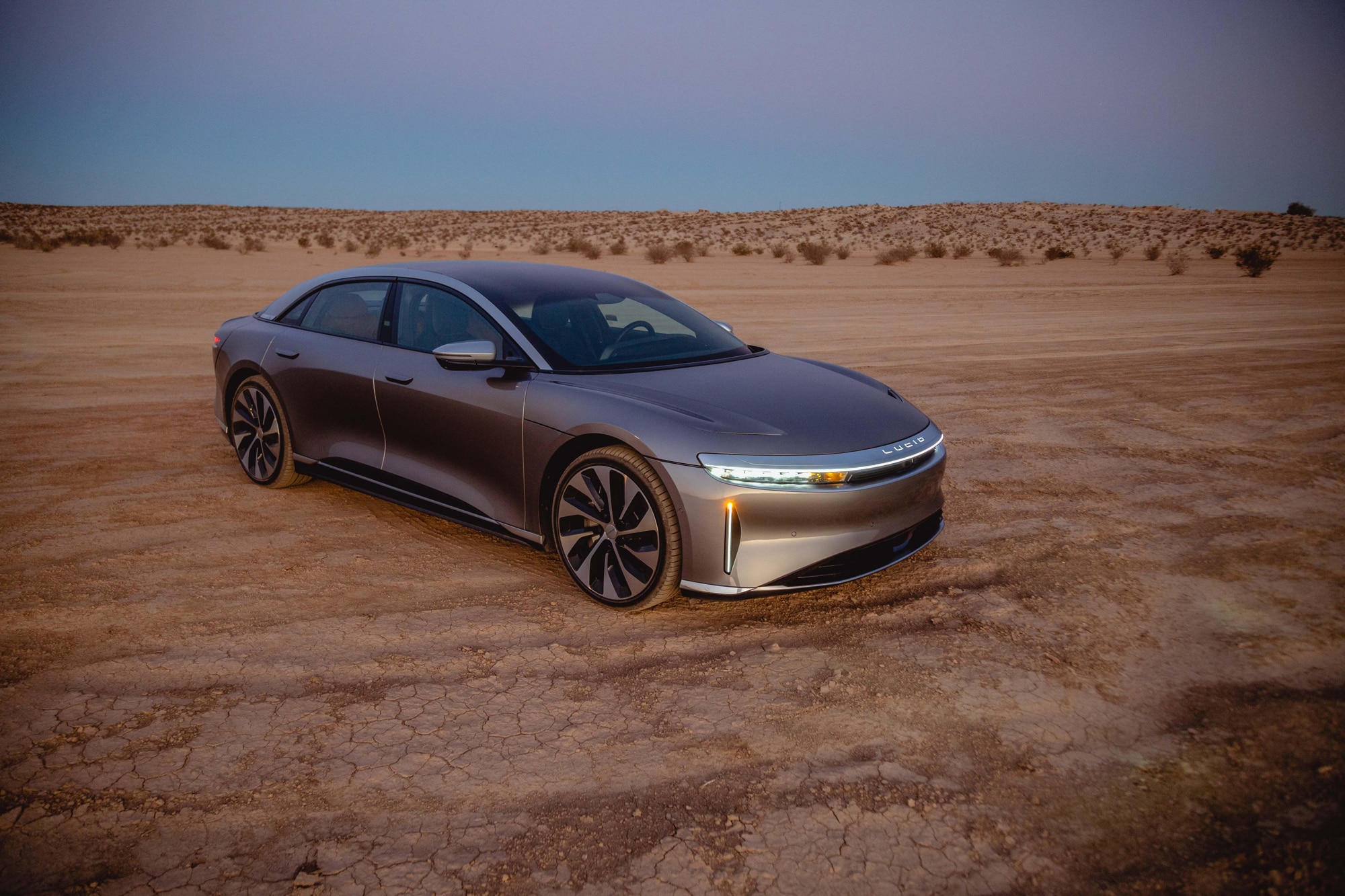Could Lucid Motors Become the Ferrari of EVs?
From racetrack to road, Lucid may look to competition to hone its EV tech.
 Manuel Carrillo III | Capital One
Manuel Carrillo III | Capital One
An old joke goes something like this: What's the best way to make a small fortune in racing? Start with a large fortune. Auto racing is wildly expensive, but the adrenaline rush it provides to individuals with private teams is intense and addictive.
When Enzo Ferrari got his start, it was as a racer and then-director of racing for Alfa Romeo. He eventually became the head of his own private racing team, Scuderia Ferrari, building race cars of his own design. His cars were winners, but the prize money was not enough to make this a self-supporting enterprise.
In order to back his team, he decided, somewhat unwillingly, to apply the engineering and design lessons he'd gleaned from the track, repackage this knowledge, and use it to sell road-going cars — only to approved clients at first — under his own name.
The same successful effort continues today, and other racing brands have followed this template, leveraging their skills and winning reputations on the track to build road-going car businesses that pump funds back into the racing team. In addition to Ferrari, these include McLaren, and now Lucid.
What Is Lucid Motors?
Lucid Motors, is an electric vehicle (EV) startup based in California and funded in large part by the Saudi Sovereign Fund. The brand currently produces one road-going vehicle: the roomy, futuristic luxury sedan, the Lucid Air. Depending on how it is configured, the Air can make more than 1,200 horsepower, can purportedly accelerate from zero to 60 mph in less than two seconds, can cost more than $250,000, and, perhaps most compellingly, can travel up to 516 miles on a single charge.
Lucid's biggest battery packs are more than 100 kWh, which is on the larger side for an electric vehicle. But the real reason Lucid is able to squeeze so much range from its cells is because the brand has developed proprietary battery, motor, and charging technology that utilizes ultra-high voltage, while minimizing heat, resistance, and weight. This allows Lucid to eke out more miles per kilowatt-hour than its competitors.
This advantage is based in no small part on the fact that Lucid got its start, back when it was called Atieva, creating innovative electric propulsion systems and drivetrains for other manufacturers, including race cars. In other words, instead of building thirsty, 12-cylinder internal-combustion engines, like Ferrari did for Formula 1 or endurance races such as Le Mans, Lucid has its roots in Formula E.
Lucid and Formula E Racing
Formula E is a racing series that began in 2014. Its core mission is relatively straightforward: to help communicate the benefits of electric vehicles beyond their environmental friendliness by demonstrating that electricity can be a compelling motivator for speed, handling, and performance on the track. Major manufacturers including Porsche, Jaguar, Maserati, and Nissan participate in the series.
As with Formula 1, strict rules apply to the shape, and every other aspect of the vehicle. In Formula E, however, the cars are essentially identical but individual teams have leeway to customize certain aspects of their cars to yield more power and range. These include weight reduction, regenerative braking, and software tweaks.
While Lucid does not currently field a team in Formula E, its connection to the series remains significant. In previous years, it provided the battery packs for all cars on the field. It was recently announced that Lucid would be providing the drive unit that powers the front wheels of all the vehicles in the forthcoming 2023 season. Lucid's expertise in light-weighting, energy storage, and energy transfer has thus been tacitly endorsed by other companies in the series, some of the biggest names in motorsports.
Lucid hasn't ruled out running an official factory team. The brand has recently hinted that it may enter its own vehicle into the competition at some point in the near future, becoming the first U.S. automaker to join.
Ferrari has not yet made any suggestion that it will follow. And though the two companies are vastly different in size, sales, history, and prestige, Lucid seems to be applying Ferrari's proven racetrack-to-road template in the new era of electric vehicles.
Road to Race to Road
For the automobile manufacturers and suppliers that participate in the series, Formula E has become a place to pressure-test advanced technology.
Many improvements made on the track find their way directly or indirectly into road-going cars, informing their further development. The prestige of winning a Formula E race can be used in marketing materials or advertising. This helps not only to build the reputation of that automaker in the EV space but also to further the larger goal of connecting electric vehicles with the joy, competition, and spirit of racing.
Written by humans.
Edited by humans.
 Brett Berk
Brett BerkBrett Berk is a New York City-based writer who covers the intersection of cars and culture: art, architecture, books, fashion, film, politics, television. His writing appears regularly in top-tier automotive and lifestyle publications.
Related articles
View more related articles